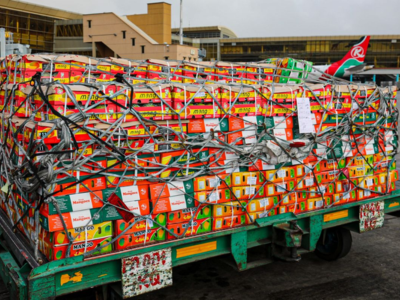End of AGOA Sparks Concerns Over Jobs, Industrialization, and U.S.- Africa Trade Ties
- by Editor
- Oct 06, 2025

Credit:
The delay by the U.S Congress in renewing the African Growth and Opportunity Act (AGOA) which officially expired on September 30 has prompted urgent calls from African leaders and economists over the potential economic fallout.
The lapse threatens an estimated $8 billion in trade and could result in the loss of up to 1.3 million jobs across key economies including Nigeria, Kenya, and South Africa, while stalling efforts to diversify exports beyond raw commodities.
Originally enacted in 2000 under President Bill Clinton and extended for a decade by President Barack Obama, AGOA provided duty-free access to the U.S. market for over 6,000 products from sub-Saharan Africa. In 2023, the program supported $9.3 billion in exports, though that figure marked a 13 percent decline from the previous year.
A new analysis by the United Nations Conference on Trade and Development (UNCTAD) warns that the expiration has intensified tariff pressures since April 2025, raising average duties for AGOA countries from below 0.5 percent to approximately 10 percent. Sectors such as apparel and agro-processing now face tariff hikes exceeding 20 percent—double the rates applied to developed economies.
Nigeria, AGOA’s largest beneficiary, is particularly exposed. Of its U.S.-bound exports, 35.9 percent qualified under AGOA, with 71 percent comprising mineral and chemical products, including $1.6 billion in crude oil last year. However, non-oil sectors—metals (21 percent), agriculture (7 percent), and textiles (1 percent)—are expected to bear the brunt of the disruption.
In response, Nigerian House Speaker Tajudeen Abbas renewed calls for AGOA’s extension during an October 2024 session, citing untapped potential and low public awareness. Kenyan President William Ruto echoed the appeal at the UN General Assembly, advocating for a five-year renewal and describing AGOA as a “fundamental bridge” between Africa and the United States.
UNCTAD projects that nine countries—including Lesotho, Kenya, Cabo Verde, Madagascar, and Tanzania—could face tariff increases exceeding 15 percent, threatening export competitiveness and disproportionately impacting women employed in labor-intensive industries.
“The end of AGOA risks locking African economies into commodity dependence, undermining industrialization and poverty alleviation,” the report cautioned, noting that current U.S. trade policies increasingly prioritize domestic production amid shifting global dynamics.
African exporters in textiles and agriculture, many of whom relied on AGOA to establish market footholds, are now exploring alternatives such as the African Continental Free Trade Area (AfCFTA). However, the abrupt policy vacuum raises concerns over factory closures, disrupted supply chains, and long-term erosion of U.S.-Africa trade relations.
With no indication of renewal from President Trump’s administration, the expiration of AGOA marks a critical juncture in bilateral economic engagement—once a symbol of partnership, now a test of resilience in an increasingly multipolar trade environment.













0 Comment(s)